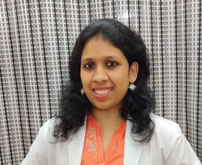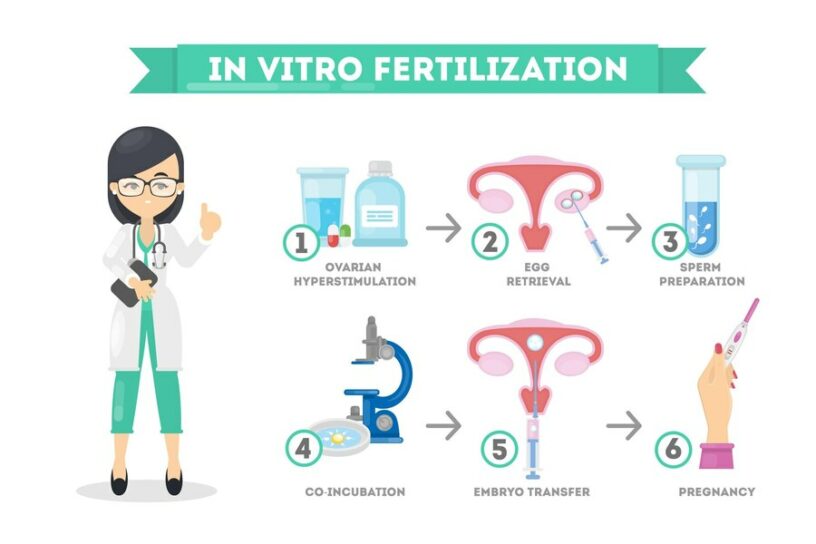What is IVF?
IVF, the acronym of In Vitro Fertilisation, is the most widely used practice to curb the problem of infertility that prevails both in men and women. This treatment so far proves to be the best in producing effective results in pregnancy cases.
Parenthood is the most rewarding experience, but some couples fail to experience this beautiful transition. For those couples, IVF can be a solution to this problem, depending on their case problem. It is the most efficient treatment that helps in fertilization, embryo development, and implantation.
IVF is a vast used and known type of Assisted Reproductive Technology (ART) that treats patients by the integration of medicines and surgical processes. The result of all the medications and surgeries is the fertilization of sperm with an egg and further implantation of the fertilized egg in the female partner’s uterus.
Which Infertility problems are curbed by IVF Treatment?
IVF treatment is the most optimal treatment for couples if the doctor detects your partner with any of these problems of infertility:
- Antibody problems that harm sperm or eggs
- Disability of sperm to penetrate or survive in the cervical mucus
- Poor egg quality
- Endometriosis
- Low sperm counts
- Problems with the uterus or fallopian tubes
- Problems with ovulation
- An unexplained fertility problem
- The genetic disease of mother or father
What is the Procedure for IVF Treatment?
IVF treatment is a process that includes an array of stages that may be considered complex and complicated by patients.
The common question that arises in the patient’s mind is whether this process involves a donor or not. So, in the context of this, let us be very clear that it is not mandatory to have a donor for the IVF process.
The procedure involves treatment with your eggs and partner’s sperm, or it may use a known or anonymous donor’s eggs and sperm.
Here’s, the list of steps and number of days each process takes to enter the next step in the IVF Treatment:
Step 1 (3 to 12 days) of IVF treatment
The IVF process starts by injecting fertility drugs into the female partner that results in the stimulation of ovaries and the production of more eggs per month instead of one egg. The patient is hospitalized for a day or a half, and after the injection process, it takes 3-12 days to move to the next step. This is typically an outpatient procedure and is completed on the same day of the visit to the doctor.
Step 2 (36 hours) of IVF treatment
This step involves injecting human chorionic gonadotropin (hCG) that results in the stimulation of releasing the developed eggs. Commonly referred to as “pregnancy hormone” by most doctors. After the completion of 36 hours, the patient undergoes the process of retrieving or harvesting the eggs.
Step 3 (1 day) of IVF treatment
The patient is provided with the sperm or will be provided from the partner or the donor as you are undergoing the retrieval process. In both the mentioned cases, the fertilization of fresh eggs takes place while you begin the intake of progesterone. If the patient needs sperm from the donor, she needs to be hospitalized for an hour or two. It takes 30 minutes of recovery to be back on your feet.
This process helps to decrease the misfortune of miscarriage and helps the uterus to maintain the viability of the pregnancy.
Step 4 (5 days) of IVF treatment
It takes a week or less after the retrieval process to transfer your viable embryo to your uterus in a noninvasive method. The doctor uses a thin tube to insert the embryo directly into the patient’s uterus. It is an outpatient process that requires the patients for an hour or two in the hospital.
Step 5 (9 to 12 days) of IVF treatment
The patient undergoes a full body examination by doctors to ensure the successful and safe implantation of the embryo in the uterus. The entire process is not complicated and requires not much surgery. If everything goes well, the patient’s body will trigger the release of pregnancy hormones.
Factors that impact success of IVF Treatment
- Age: Age plays a crucial factor in IVF Treatment. Since the egg quality and overall egg production goes down with age, a younger age typically correlates with a higher probability of success.
- Previous Pregnancy: The IVF success rate is also determined on the factor of whether the patient was pregnant earlier and that too with the same partner or not. A recent miscarriage or changed partners is also a considerate factor.
- Daily Routine: These routines must consist of a healthy and balanced diet, including fruits and vegetables, light exercises, lots of water, and a happy place for a healthy pregnancy. Try to cut down the consumption of alcohol and say no to smoking.
- Using Donor Eggs: Since the success rates of IVF treatment decreases with the increase in the age, so for the aged people, this donor eggs and sperm is quite effective. Old Patients prefer this criterion because high-quality eggs of younger donors result in pregnancy.
Clearing Some Myths Around IVF Treatment
Myth 1: IVF is successful only for particular cases
The IVF treatment has helped many patients to fulfill their dream of experiencing parenthood.
The probability of success depends on the factors mentioned above.IVF treatment works for most people falling in the age group 20-30. But patients above this age group may or may not suffer some complications. IVF treatment is the most preferred method in getting pregnant as compared to other options available.
Myth 2: IVF Treatment is not recommended for patients aged 30 above
This one is the biggest myth that 30+ age group patients should never opt for IVF treatment. The age factor plays a significant role because of the quality of eggs, but nothing is impossible. The case depends on various factors, so there exists no proof that the patient’s group above 30 should not go for this treatment. IVF treatment uses donor eggs to get the best results.
Myth 3: IVF Treatment is not safe
IVF treatment is the most reliable for pregnancy problems. The risk of becoming unwell after the treatment stands very less.
Myth 4: IVF Treatment has a very long Hospitalization period
This treatment only requires the hospitalization of the patient for some processes and some days. You need not be admitted for a much longer time. The IVF treatment is more of the OPD process, which requires regular checkups. The IVF cycle completes in 18-20 days, depending on the cases. The patient has to admit approximately 6-7 days but visits the doctor quite often for a healthy pregnancy.
Myth5: Babies born after IVF Treatment may suffer some defects
There is absolutely no such risk after the IVF treatment.
So, before you opt to adopt this treatment, we would prefer you to have thorough knowledge about the procedure so that you come with a crystal clear mind. Try to have sessions with highly professional doctors before making any decision.
Other Fertility Treatments
- Laparoscopy: This treatment involves small incisions made at or just below the navel and public hairline. A laparoscope is a small-diameter telescope which is passed through the incision. This method helps the patient’s fertility specialist io examine the fallopian tubes, pelvic cavity, and ovaries for any abnormality.
- Hysteroscopy: The method assesses a patient’s uterine cavity for problems like polyps, fibroids, or adhesions. Uses the small-diameter telescope called a hysteroscope.
- Endometriosis treatment: Endometriosis in a patient’s body requires removal, which requires surgery. If there is a failure in removing it, then the doctor suggests IVF treatment.
- Tubal Surgery: Laparoscopy diagnosis any tubal damage or abnormality. The fertility doctors usually suggest this surgery before the IVF treatment to improve the chance of natural conception.
- Microsurgery: Both men and women undergo this microsurgery as per the case. In females, the microsurgery removes scar tissue around tubes and uterus, reverses sterilization, and re-opens the blocked tubes. In males microsurgery repairs tubes that carry sperm, the repeal of sterilization and sperm retrieval procedures.
- IUI: IUI, the acronym of Intrauterine insemination, is the treatment commonly known as “semen-washing.” The process starts by separating the healthy sperm from the semen and directly putting them into the uterus. This method brings the sperm closer to the egg and cuts down the traveling time.
How is Ayu Health Helpful?
Ayu Health is India’s most trusted network of hospitals. Our in-house fertility experts are among the best in their field and will identify the most optimal fertility treatment for the specific individual/couple. Our fertility team is driven at driving successful outcomes for aspiring parents, and not an inflated top-line for the hospital.
Ayu Health offer all advanced fertility procedures and carry mandatory certifications from the government authorities. Our infertility treatment centers are equipped with state-of-the-art technology, including Andrology and Embryology labs. Also, the hospitals are accredited by NABH, India’s premier hospital accreditation authority.
Ayu Health also lets you clear your doubts before the decision-making process by helping you consult with the finest and proficient doctors under whom your treatment process.
If you are looking for a leading doctor who can treat and perform effective IVF treatment and suggest the best methods to get the procedure just right for you in India, you can call +91 – 6366 100 800 or visit us at https://ayu.health/bangalore/surgery/Fertility-30.
Ayu Health may be your best bet! For booking an appointment, call 636-610-0800.
Our Hospital Locations
Gynaecology Surgery Hospitals in Chandigarh | Gynaecology Surgery Hospitals in Bangalore | Gynaecology Surgery Hospitals in Jaipur | Gynaecology Surgery Hospitals in NCR | Gynaecology Surgery Hospitals in Hyderabad
Our Doctors
Gynaecology Surgery Doctors in Chandigarh | Gynaecology Surgery Doctors in Bangalore | Gynaecology Surgery Doctors in Jaipur | Gynaecology Surgery Doctors in NCR | Gynaecology Surgery Doctors in Hyderabad
About the Author

Dr. Nikitha Murthy B.S.
Dr. Nikitha Murthy B.S. is a renowned Gynaecologist currently practicing at Ayu Health, Bangalore.
He is s a Consultant with IVF Access at its Rajajinagar clinic. She has over 6 years of experience. Dr. Nikitha has a post-graduation (MS) in Gynaecology, DNB from the National Board of India, and a Fellowship in Reproductive Medicine. He also has vast experience in Post-Graduation (MS) in Gynaecology and DNB.




